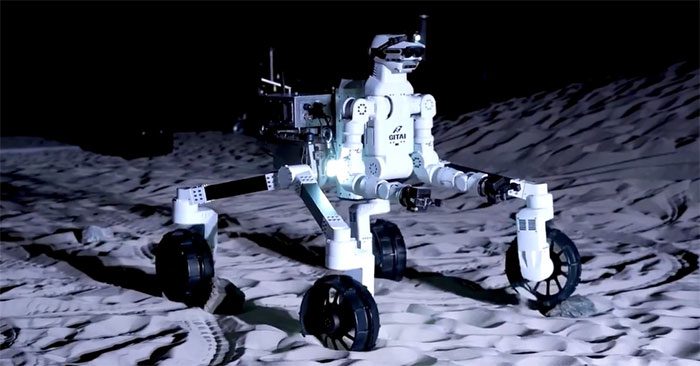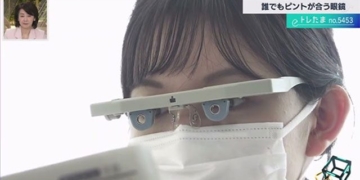The R1 robot prototype is equipped with 4 wheeled legs, 2 observation cameras, and 2 claw-like arms that can perform flexible movements.
The company GITAI has collaborated with the Japan Aerospace Exploration Agency (JAXA) to design and manufacture the R1, a moon robot prototype resembling a centaur, CNN reported on June 10. The robot features 4 wheeled legs, 2 front arms, and 2 cameras serving as eyes.
Video: GITAI
In a recent test at JAXA’s facility using simulated lunar soil, the R1 navigated rough terrain with its 4 wheels and utilized its claw-like hands to manipulate equipment. This is one of many robots that GITAI is developing for various purposes. The company’s goal is to deploy its equipment on the lunar surface around the mid-2020s.
The R1 also performed several exercises to test its ability to traverse rugged and hilly terrain and collect lunar rock and soil samples. The video shows it using its hands to pick up a small shovel and a transparent container, then quickly gathering a small amount of simulated lunar soil.
The use of robots in space is not new. The International Space Station (ISS) has had a robot accompanying astronauts and robotic arms, including one developed by Japan. NASA has also sent several robots to Mars. However, no robot has yet featured the unique design characteristics of the R1.

R1 robot testing in a simulated lunar environment.
The GITAI robot is part of the race to develop new vehicles for missions such as mining or manufacturing in space, as China, Russia, the United States, and other countries strive toward establishing lunar bases. Such bases could support both commercial and scientific activities. Many American companies are also developing various types of robots, autonomous vehicles, and lunar landers for future missions.
Similar to NASA, JAXA has contracted with private companies in hopes that competition and privatization will drive advancements in space technology. “Our goal is to successfully commercialize space robots, thereby reducing the cost of space labor to 1%. We believe our success will contribute to the actual commercialization of space,” shared Sho Nakanose, CEO of GITAI.





















































